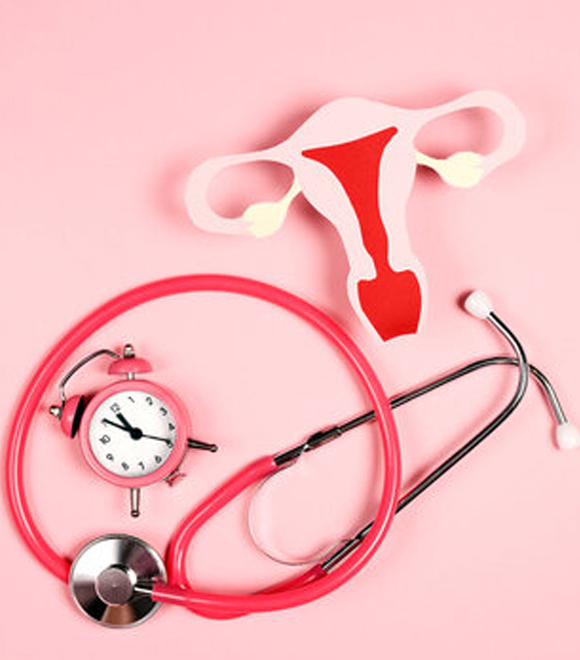
Menopause Issues
Menopause Issues
Hot flashes are sudden, intense feelings of heat, often accompanied by sweating and flushing of the face and neck.
Night sweats refer to similar experiences that occur during sleep.
These symptoms can disrupt sleep and cause discomfort, but their frequency and intensity tend to diminish over time for most women.
Decreased estrogen levels can lead to thinning and drying of the vaginal tissues, causing vaginal dryness, itching and discomfort during sexual intercourse (dyspareunia).
Lubricants or moisturizers can help alleviate symptoms and in some cases, hormone replacement therapy (HRT) or vaginal estrogen therapy may be recommended.
Menstrual cycles may become irregular before eventually ceasing altogether.
Some women may experience heavier or lighter periods, longer or shorter cycles, or intermittent bleeding during perimenopause (the transitional phase before menopause).
Hormonal changes, night sweats and other menopausal symptoms can disrupt sleep patterns and lead to insomnia or restless sleep.
Fluctuating hormone levels during menopause can contribute to mood swings, irritability, anxiety and feelings of sadness or depression in some women.
Hormone therapy, counseling, lifestyle changes and support from loved ones can help manage these emotional symptoms.
Estrogen plays a role in maintaining bone density, so the decline in estrogen levels during menopause can increase the risk of osteoporosis (weak and brittle bones).
Adequate calcium and vitamin D intake, regular weight-bearing exercises and medications (if necessary) can help maintain bone health.
Menopause-related hormonal changes can affect libido, vaginal lubrication and sexual satisfaction. Communication with a partner and exploring different sexual techniques or treatments can help address these concerns.
Menopause can also lead to fatigue, memory problems, urinary changes (such as increased frequency or urinary incontinence) joint and muscle pain and changes in skin and hair.
It’s important to note that menopause experiences can vary widely among women. While some may have minimal symptoms, others may experience more significant challenges. If menopausal symptoms are affecting your daily life, it is advisable to consult with a healthcare professional who can provide guidance, recommend appropriate treatments and offer support during this transitional phase.





